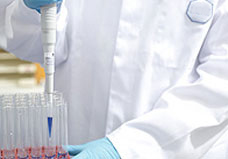| |
 |
|
|
|
|
|
|
Shigellosis |
|
|
What Is Shigellosis?
Shigellosis (pronounced: shih-guh-lo-sus) is an intestinal
infection caused by Shigella (pronounced: shih-geh-luh) bacteria.
The bacteria produce toxins that can attack the lining of the
large intestine, causing swelling, ulcers on the intestinal wall,
and bloody diarrhea. Symptoms can range from just watery diarrhea
to bloody diarrhea, fever, and abdominal pain.
Shigella bacteria can contaminate food and water supplies,
especially in areas where the sanitation is not adequate. However,
most of the time the bacteria are spread when a person comes into
contact with another person's stool (poop). That's one of the
reasons why it's important to wash your hands after using the
restroom. It takes as few as 10 of these bacteria to cause an
infection. That means that Shigella bacteria can spread easily
within families, schools, child-care centers, nursing homes, and
other institutions.
Shigellosis can affect people of any age, including teens. It's
especially common in children ages 2 to 3 years old because
they're often not toilet trained yet or they don't wash their
hands after using the bathroom.
What Are Its Signs and
Symptoms?
The severity of the diarrhea sets shigellosis apart from regular
diarrhea. When someone has shigellosis, the first bowel movement
is often large and watery. Later bowel movements may be smaller,
but the diarrhea may have blood and mucus in it.
Other symptoms of shigellosis include:
-
abdominal cramps
-
high fever
-
loss of appetite
-
nausea and vomiting
-
painful bowel movements
In very severe cases of
shigellosis, a person may have convulsions (seizures), a stiff
neck, a headache, extreme tiredness, and confusion. Shigellosis
can also lead to dehydration and in rare cases, other
complications, like kidney failure.
How Is Shigellosis Diagnosed and
Treated?
If you have severe diarrhea, especially if you are bleeding from
your anus or have blood in your bowel movements, ask your parent
to call your doctor right away. The doctor may take a sample of
your stool to see if it contains Shigella bacteria. Blood tests
and other tests may also be needed to look for other possible
causes of the symptoms, especially if you have a large amount of
blood in your stool.
Depending on the severity of your symptoms, your doctor will
suggest fluids and may prescribe antibiotics to treat shigellosis.
Antibiotics can help you recover faster and prevent the bacteria
from spreading to other people. Most doctors suggest that people
avoid using any antidiarrheal medications because they can make
the infection worse.
|
|
|
|
Shigellosis - treatment of Shigellosis,
Shigellosis types, Disease medicines, Shigellosis symptoms, Shigellosis and
Disease symptoms, Shigellosis symptoms Disease and diagnosis, Symptoms and
Solutions, Signs and Symptoms, type of Shigellosis, cause common, common
Shigellosis, Shigellosis List, causes list, Infectious Shigellosis, Causes,
Diseases , Types, Prevention, Treatment and Facts, Shigellosis information,
Shigellosis: Definition, Shigellosis names, medical Shigellosis, medical
Shigellosis and disorders, cell Shigellosis, Shigellosis Worldwide,
Shigellosis Research, Shigellosis Control, Shigellosis Center, Digestive
Shigellosis Week, Information about Shigellosis, causes of different
Shigellosis, Shigellosis Articles, Shigellosis and conditions, Health and
Shigellosis, Shigellosis Patients, Shigellosis and Sciences, causes of
alzheimer's Shigellosis, Shigellosis causes, alternative medicine heart
Shigellosis, body ailments, Shigellosis medicines, medical antiques, type of
blood Shigellosis |
|
|





